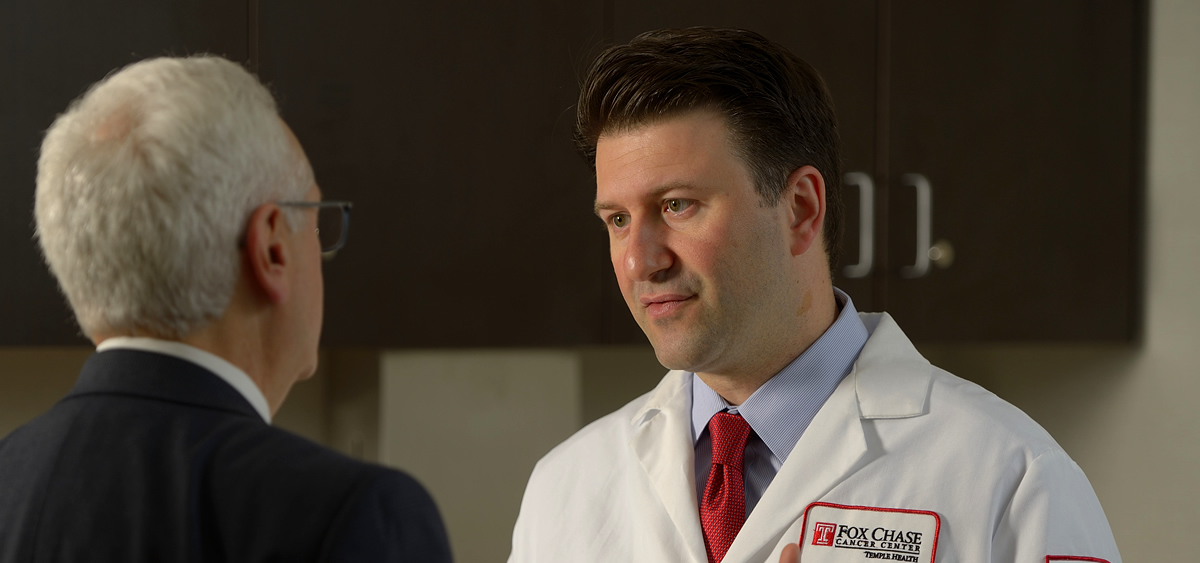
PHILADELPHIA (May 19, 2018) – Researchers at Fox Chase Cancer Center are seeking to solve a diagnostic dilemma inherent in current treatment recommendations for bladder cancer. Presently, the standard of care for all patients whose tumors have reached the muscle layer is radical cystectomy, the removal of the bladder. However, as many as 30 percent of patients who undergo this surgery, especially after receiving chemotherapy, do not harbor residual cancer in their bladders.
With current methods and technologies, there is no reliable way to identify which patients can safely avoid the surgery. Cystoscopy is used, but falls short for some bladder cancer patients. The Fox Chase trial is designed to understand why and how cystoscopy misses some cancers, and to see if there are other diagnostic tests that may work more effectively alone or in combination with cystoscopy.
“Radical cystectomy with urinary diversion is a high-risk, life-changing surgery, and our goal is to find a way to spare patients for whom it is not necessary,” said Alexander Kutikov, MD, chief of the Division of Urology and Urologic Oncology at Fox Chase and senior author of the study.
The research team will present their study at the American Urological Association (AUA) annual meeting in San Francisco this weekend.
This trial marks the first time the true negative predictive value of a normal cystoscopic evaluation is being identified, allowing researchers to establish how often bladder cancer hides under the mucosa and evades endoscopic diagnosis. The trial remains open for enrollment, and the team is hopeful their findings will make it possible to develop better screening and testing to identify patients who can avoid radical cystectomy.
“Huge opportunities exist to provide more accurate diagnostic evaluation for patients,” Kutikov said.